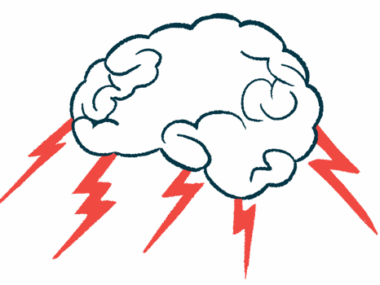Finding my voice again as I continue to adapt to ALS
When I lapsed in practicing my speech, my abilities let me know it
Written by |

“I still can’t understand you. Say it one more time.”
My husband and I were having a simple conversation, and I was trying to emphasize my point of view, but my mouth and tongue simply wouldn’t coordinate. Instead of pausing to slow down, I just kept repeating the same garbled words, only louder and louder.
I knew my ALS-affected voice was the cause. And I knew it was a warning sign that I’d skipped too many days of my self-directed voice drills.
My voice issues began 11 years ago. That was four years after my diagnosis of ALS, which was spurred by the weakness in my legs and feet. So I was already in a “What’s next?” frame of mind.
The first thing I noticed was that my voice dropped into a lower pitch, making me sound like an angry pirate. Then I had to navigate the disconnect of speaking words at a slower pace than my brain created them. In addition, certain sounds, including “kah,” “gah,” and “r-r-r,” became difficult to pronounce. Speaking with others became so frustrating; I’d hoped someone would invent a way to have captions magically appear on my forehead.
I didn’t feel I was ready to rely on text-to-talk devices, so I practiced various methods to help my voice. But over time, just like in my column “I have met the enemy, and surprise! It’s not my ALS this time,” what I was experiencing was the result of an “I’m-bored-doing-these-exercises” mindset.
Oh, I had many opinions, snappy comebacks, and long conversations — all in my mind. When I did speak, I opted for easier, single-syllable words. The blame was on me.
What’s my new vocal routine?
Even though I’ve returned to my previous practice, I’ve also doubled down on pronunciation. Every day, I try to read a random paragraph out loud. Newspaper, magazine, even a brochure — it doesn’t matter what, just read it out loud. If I stumble over a word, I go back and repeat it five or six times, trying to smooth out my enunciation. I encourage my tongue and mouth to “muscle-memorize” the sequence of the word’s unique sound.
I also prepare for the day’s potential speaking opportunities by keeping my mouth and voice warmed up. Several times a day, I hum for several minutes, plus move my mouth in making the shapes “ouu, ahh, eee, ouu, ahh, eee.”
A recent ALS News Today article titled “7 communication tips for ALS caregivers” had me cheering. It explains how important the partnership is between the ALS patient and their caregiver. Helpful strategies, tips, and advice are all excellent ways caregivers can provide support for their loved ones.
That’s the thing about life with ALS. It’s taught me many lessons, and a very important one is to never give up. Let’s commit to not giving up and help each other learn to live well while living with ALS.
Note: ALS News Today is strictly a news and information website about the disease. It does not provide medical advice, diagnosis, or treatment. This content is not intended to be a substitute for professional medical advice, diagnosis, or treatment. Always seek the advice of your physician or other qualified health provider with any questions you may have regarding a medical condition. Never disregard professional medical advice or delay in seeking it because of something you have read on this website. The opinions expressed in this column are not those of ALS News Today or its parent company, Bionews, and are intended to spark discussion about issues pertaining to ALS.







Leave a comment
Fill in the required fields to post. Your email address will not be published.